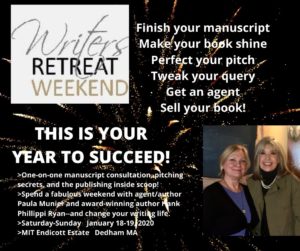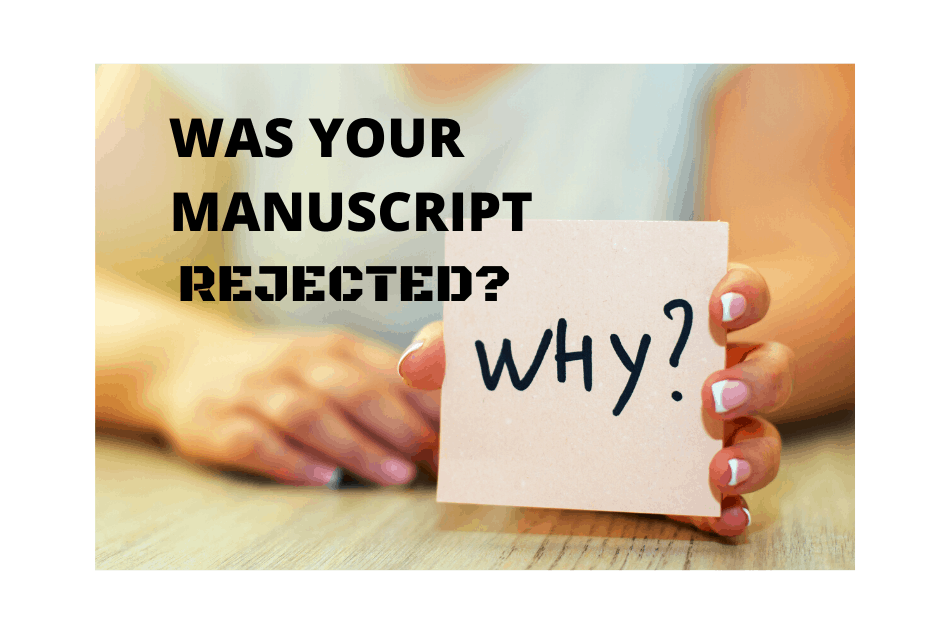Hurray. It’s the new year. And you are determined this is the year you not only finish your book, but submit it. And get an agent. And get it sold! Yay.
But what’s likely to happen before that—and you know this—is that you’ll get a rejection. Or two. Or many many more. You’re a career author, so you know this is how it works. You know all the reassuring tales of the astonishing number of rejections Katherine Stockett got before THE HELP was finally sold, and how Kon-Tiki was universally disdained, and how some agent told Tony Hillerman to “lose the Indians.”
But you also know how all of that won’t matter when someone says no to YOU.
Even though you understand that “no” is simply the path to yes, you’ll certainly ask yourself (and anyone else who will listen) “Why was I rejected?” (And you mean—why was my book rejected, right? Make sure you’re clear on that.)
But here’s a Career Authors secret. You should actually try to answer that question. Why was your manuscript rejected?
It’s too original
Crazy as it sounds, a manuscript where the story is too original may be off-putting to risk-averse agents. Lee Child once said “People want the same thing, only different.” If you have send a ms. with a query promising “You’ve never read anything like this”—that may not be a good thing. Next time, how can you showcase your brilliant innovation to illustrate how it’s advancing successful publishing trends? How can you make an agent understand it’s innovative, but not risky?
It’s too unoriginal
And there you have the paradox. If your ms. is too been-there-done-that, that may not work, either. Yet another zombie-alcoholic-fae-portal-wizardschool-unreliable-vanishing-reappearing whatever. Maybe that’s why your book was turned down. Listen, maybe some boss person has declared: no more whatevers. And so much for your otherwise wonderful book. Perhaps, for instance, however good it is, the agent does not need another reporter/detective/nurse/soldier/spy/dog/gardening/WMD story.
*Hank’s actual rejection: “I couldn’t turn the pages fast enough! Sadly, we already have a reporter book by a reporter, so…”
It’s not what they’re looking for
You’ve been shopping. You’ve approached a rack of clothing, looking for navy trousers, maybe. And, touching each hanger, have shoved them aside, one by one, saying nope nope nope nope with hardly a second thought, because they are not what you are looking for. You nope out the green trousers, and the pink trousers, and even the tempting silver trousers. You only want navy blue. You only need navy blue. Well, maybe the agent you sent your gorgeous silver trousers to is looking for navy blue.
*Hank’s actual rejection for a mystery ms: “This author is a very skilled writer. Does she do non-fiction?”
Your query letter is weak
Does it absolutely grab the reader from sentence one? If not, they’re never going to get to sentence two. When I sent queries for Prime Time years ago, my first query—roundly rejected—started with “Charlotte McNally is a veteran reporter who…”
Hmm. No one cared. So I changed it. Not the manuscript, the query. I changed it to “What if that annoying spam clogging your computer is really secret messages?” Boom. Everyone said yes.
Again, the manuscript was exactly the same.
It’s a taste thing
My husband and I often, if not always, disagree about books. Why? Because it’s a rare book that everyone loves. The agent/editor who rejected yours may simply not love it. Fine. Move on.
*Hank’s actual rejection 1: “This is such a terrific plot. But the writing is a little weak.” Different agent, same book: “You are such a skilled writer! But I’m not sure about the plot.”
You didn’t follow the rules of submission
Every agent has them. Did you check the website before you sent? If the agent says: “No full manuscripts,” it’s not cool or endearing to send one anyway. And did you individualize your letter? Starting a letter with “Dear Agent” is going to zap you right into the delete pile.
Your book is not ready
Did you send it in the heat of yay-I’m-finally-done passion? Do you regret it now? You can command someone’s attention just once. Don’t squander your chance by sending an early draft manuscript that’s sloppy, unedited, or screamingly amateur. No one is going to fix that book but you. No one is going to say, oh, this is a mess but I see hidden talent so I’ll spend the next year helping this person. Get an editor. And I don’t mean your pals or your spouse or your parents. A real, tough, serious, experienced, knowledgeable editor.
Um, your book is actually not good
Yeah, that could be. I’ve read manuscripts that make me think—has this person ever read a book? Because this is not a book. No identifiable main character. No setting. No chapters. No plot. Not to mention no formatting, no grammar, and no fully-formed sentences. Not everyone’s books get published. (Unless you self-publish, of course, but that’s not what this is about.) Are you in this category? See “get an editor” above.
So yeah. Happy new year, Career Authors. Can you believe we do this? Of course! Submitting your manuscript is a rite of passage. You gotta do it. So do it. Embrace it, learn from it, and do it again. What are your realizations from rejections? Let’s talk about it on the Career Authors Facebook page.
*Truly. I saved these letters.
 And BREAKING NEWS: Career Authors’ own agent/author Paula Munier and and I are offering a fabulous up-close and personal “this is your year” Writers Weekend seminar in Dedham MA on Jan 18-19 2020. We’ll have super-individual one-on-one manuscript advice, show you how to perfect your query and pitch, and give you some inside scoop on how to help make 2020 the year your book succeeds. All at MIT’s opulent Endicott Estate. Click here for more info!
And BREAKING NEWS: Career Authors’ own agent/author Paula Munier and and I are offering a fabulous up-close and personal “this is your year” Writers Weekend seminar in Dedham MA on Jan 18-19 2020. We’ll have super-individual one-on-one manuscript advice, show you how to perfect your query and pitch, and give you some inside scoop on how to help make 2020 the year your book succeeds. All at MIT’s opulent Endicott Estate. Click here for more info!
Or contact us directly if you have any questions!





